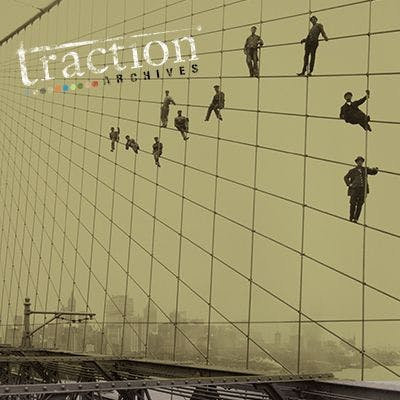7 Reasons your Employees Hate You

By Adam Kleinberg
This Sunday, I'll be moderating a "core conversation" at the SXSW Conference in Austin, TX.
The idea behind these sessions is to add order to the chaos of all the fantastic conversations going on in the halls and corridors of SXSW by scheduling moderated sessions around specific topics of interest.
Mine will be on company culture and management. More specifically, " 7 reasons your employees hate you. "
I'm going to use this worksheet as a strategic framework to help people become better managers.
SXSW: 7 reasons your employees hate you
Below, I've also reposted the article I wrote for iMediaConnection last year that inspired my speaker submission. I hope you find it insightful and would love your feedback in comments.
7 reasons your employees hate you.
At some point in your career, you wake up one morning, drink your coffee, put on deodorant, kiss your kids good-bye, drive to the office, and suddenly realize -- you don't have one ounce of experience at your job.
You did yesterday. What happened?
You were promoted. You became a manager. And you suck at it.
Yesterday, you were an absolute rock star at your job as a media planner. Or designer. Or salesperson. So fantastic they put you in charge.
And now, you've got six eager faces standing around your desk, looking to you for guidance.
So, you do what you've always done. You wing it. Act like a leader. Demand results. Drive the ship. Everything you've seen your former bosses do for years on end.
And a year down the road, during your Monday morning staff meeting, you announce a new initiative and see someone at the table sneer in disgust. You look around at all faces and realize: These people hate my guts. They can't stand me.
What did you do wrong?
Well the truth is, I only know why my employees hate me. But I've got some good guesses why they hate you. Seven of 'em.
You tell me. Am I right?
You don't leave them alone.
Nobody wants to be micro-managed. If you browbeat the people on your team to make sure they do what you want them to do the way you want them to do it, they're going to hate you.
As a manager of other human beings, your job is not to care if people like everything you say. Your job is to get results.
But people perform -- and deliver results -- when they have clear goals, the tools to do the job, and the support of their boss.
When people have you breathing down their neck, they don't perform. They are reactive instead of proactive. They look down instead of looking forward. They don't feel you have confidence in them, so they don't have confidence in themselves.
Think about it. When have you had your best job interviews? Your best client meetings? You perform better when you're confident.
Now imagine that confidence was ripped away from you. You failed in your attempt to get that cute girl's phone number. And you knew exactly who it was that took your mojo away.
You'd hate them.
You leave them alone.
The opposite of micro-management is ignoring your people.
Every single one of us craves... desires... yearns for feedback, all the time.
Your people want the attention of their boss. After all, you are the human being with the power to give them a raise, promote them, put them on the great new account and, yes, fire them.
If you don't give your people feedback and meet with them regularly, they don't know if they're doing a good job. Chances are, when you finally do get around to giving them feedback, it's because there's a problem. They are in trouble. That means the only time they hear from you is when there is something negative happening.
How are they supposed to feel about you? I don't even know you and I hate you.
Your people have a reasonable expectation to receive guidance from you. Positive and negative.
That's easy to overlook in the name of "being hands-off." But good intentions have a way of biting you on the ass. There is a middle ground.
Talk with your people. They need it.
You're a Twit.
This is definitely a reason my people hate me.
I'm going to go out on a limb here and assume that since you're reading this article in this esteemed publication, you have an interest in new developments and trends in the industry -- things like social media.
This means you're probably doing things like using Twitter.
But tweet with care, my friends, or risk the abhorrence of your team. All it takes is one bumbling Twitter message that was supposed to be a direct message to someone on your team, but accidentally got broadcast out to the Twitterverse, to transform you into a complete and utter "Twit" in the eyes of your team.
Believe me, I know.
Oh, you can blame your BlackBerry. You can blame your ignorance of social media syntax. No one cares. The result is the same: You just made a public statement about something that was supposed to be discrete.
Oops.
Regardless of your excuse, public acts of unprofessional behavior reflect poorly on you, reflect poorly on your team, and reflect poorly on your organization. So, think before you tweet.
(If you'd like to watch me make an unprofessional ass of myself in real-time, you can follow me at @adamkleinberg .)
You make commitments without checking.
The overpromise -- probably the most loathsome of managerial behaviors.
We all know that in this business, sometimes we all have to pull rabbits out of a hat. You have clients, they have needs, you need to deliver, so you say "yes" first, and ask questions later.
Then you dump a steaming pile of commitment on your team's lap that they cannot humanly accomplish.
The next three weeks are filled with stressed-out teams working until 11 p.m. and on Sundays. This might be acceptable if at the end of their efforts they were rewarded with a happy and grateful client. But since you set them up for the impossible, they're doomed to fail.
Can you think of something worse than working your butt off to deliver on an unreasonable commitment someone else made on your behalf and then not even having your work be appreciated?
"What can I do?" you ask. Clients are clients and -- especially in this economy -- if you don't say "yes," someone else will.
I have some good news.
First, I have neverbeen penalized by a client for telling them I have to check with my team to make sure something is feasible before confirming we can do it.
Second, there is an art you can master. It was taught to me by Traction's executive producer, Goyo Aranaga, and now I shall pass it along to you: the art of the "yes, but..."
Here's how it works.
"Yes, but we'll have to sacrifice something lower on our priority list to make it possible."
See? Not so bad.
You don't follow your own rules.
What you do every day gives cues to your people as to what matters in your world. Rules, policies, and processes are all important. Which is why it's important for you, more so than anyone on your team, to adhere to them.
When you don't follow a rule, especially one you've made, you are saying to your team, "This is menial. This is not important enough for me to follow."
When you demand your people adhere to a rule you just told them is menial and unimportant, you are implying that they are menial and unimportant.
Ergo, they hate your guts.
You lie.
I can hear what you're thinking: "Them's fighting words."
Maybe, but understand this: When you tell your people you are going to do something and then you don't do it, you just lied. Period.
It may not feel like a lie to you, but you don't get points for telling 75 percent of the truth. And when you keep less than 100 percent of your word, people soon start to get the message that your word doesn't mean squat.
Trust goes out the window. Are you someone they can rely on? Not so much. Yet, as I pointed out earlier, you have your people's careers in your hands. They need to feel they can rely on you.
If you don't take that responsibility seriously, they should hate you.
You're scary.
Remember Pavlov? He was the scientist that figured out that trained responses are biological in nature. Every day, he rang a bell and then gave a dog some food. One day, he rang the bell and didn't give the dog food. However, the dog began to drool in anticipation of being fed. For the dog, the bell = food.
We are all Pavlov's dogs.
If your people only get negative feedback from you, they are going to learn pretty quickly that every single time you ask them to come into your office and close the door, they should be scared. The moment you ask to speak with them, they are going to physically respond by feeling queasy.
They're right to. You're about to tell them they did something wrong, and they know it. Hell, everyone in the office knows it. Hate blooms.
Letting people know when they do something right is even more important than telling them when they do something wrong.
Positive feedback motivates. Negative feedback de-motivates. You want results. You cannot de-motivate results.
In the words of the Godfather, "It is better to be loved than feared."

I’ve done a lot of projects using WordPress, and early on I realized the benefits of keeping my project files in a version control system like Subversion.

On January 3, 2011 David Friedman posted a pretty grand idea. Crowdfund a mission to put a monolith on the Moon. This would be an ultimate scale nerdy prank.

Recently, Traction deployed a website built on WordPress to a virtual private server, and being the kind of developer I am, I urged the team to try out Capistrano.
